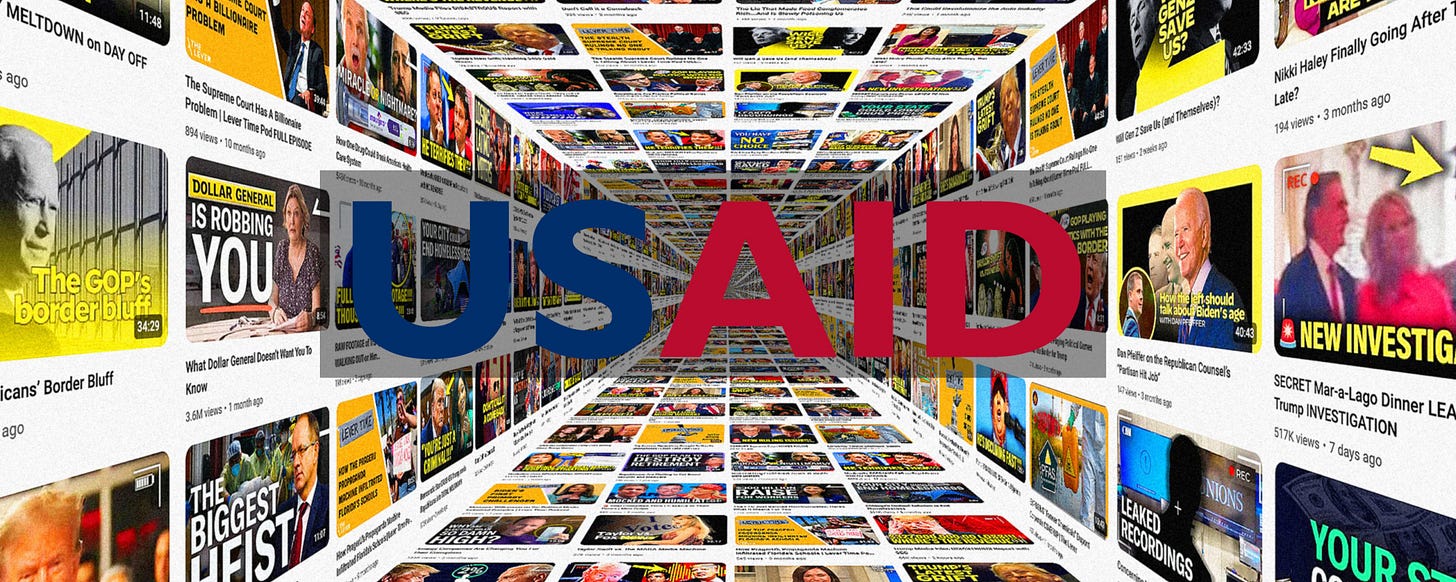A free press is fundamental to democracy. It operates as the Fourth Estate, an institution distinct from the legislature, executive, and judiciary, yet tasked with holding all three accountable. It ensures that power is checked, abuses are exposed, and citizens are informed. But when the press no longer functions independently—when it becomes financially dependent on the very government it should be scrutinizing—it ceases to be a check on power and instead becomes its servant. Today, what was once a fiercely independent institution has been subsumed into the apparatus of the state, its objectivity undermined, its credibility eroded.
This shift is no accident. The American Left, which frequently proclaims that "democracy dies in darkness," has embraced state-funded journalism as a means to control the narrative. Under the guise of preserving "independent journalism," taxpayer dollars are funneled into media institutions that overwhelmingly favor progressive causes and Democratic candidates. The result is a government-sponsored monopoly on information—one that actively excludes conservative perspectives from the national conversation.
The evidence is clear. A 2022 Pew Research Center study found that only 7% of journalists identify as conservative. More tellingly, 96% of political donations from journalists go to Democrats, a pattern confirmed by Federal Election Commission data. Journalism’s ideological bias is no longer a matter of speculation; it is an empirical fact. When the vast majority of those shaping public discourse lean one way—and when government funding sustains their platforms—the concept of a free and fair press becomes a fiction.
The federal government plays a direct role in this ideological capture. Through advertising contracts, grants, and subsidies, Washington props up left-leaning media organizations while leaving conservative outlets to fend for themselves. Agencies such as USAID, for instance, have allocated funds to thousands of journalists and media groups, with over 94% of political contributions from its employees going to Democrats. These are not neutral decisions. They amount to a strategic investment in ideological conformity—one that ensures certain narratives are amplified while others are systematically silenced.
A recent Columbia Journalism Review analysis revealed that USAID has supported over 6,200 journalists, 707 news outlets, and nearly 300 media sector organizations across 30 countries. The United States government has become, by its own admission, the world’s largest public donor to "independent" media. But just how "independent" is a press reliant on government checks? The Founders, keenly aware of the dangers of state-controlled narratives, understood that a truly free press must be untethered from the very government it critiques.
The role of USAID is particularly insidious. While it claims to promote democracy, its function in media funding mirrors Cold War-era propaganda efforts. Far from championing true press freedom, USAID operates as a vehicle for soft-power influence, funding journalists and media groups that align with Washington’s ideological goals while conveniently ignoring leftist regimes that suppress conservative voices. The program is not about protecting journalists—it is about ensuring that the "right" kind of journalism flourishes while opposition narratives are marginalized.
Take, for instance, USAID's influence in Latin America, where it has actively bankrolled left-wing media organizations that work to undermine conservative and nationalist governments. In Eastern Europe, its press programs have been used to foster opposition movements against right-leaning governments in Hungary and Poland while turning a blind eye to leftist crackdowns elsewhere. The organization’s selective application of "press freedom" is a glaring indicator of its true purpose: political interference masquerading as journalism support.
One must ask: if USAID is so committed to media independence, why is it absent in places like Cuba or Venezuela, where journalists face real threats from authoritarian regimes? The answer is evident—USAID’s media projects are not about fostering independent journalism but about engineering regime change against governments that resist Washington’s progressive-globalist agenda.
This state-sponsored journalism has profound consequences. Stories unfavorable to the Left are buried, and investigations into Democratic corruption are dismissed as "conspiracy theories." A glaring example was the suppression of the Hunter Biden laptop story before the 2020 election—a story later confirmed as legitimate but dismissed at the time as "Russian disinformation" by an obedient press. The result? Public discourse is distorted, elections are influenced, and dissenting voices struggle to be heard.
The Founders understood the necessity of an independent press. A media establishment that takes its cues—and its funding—from the government is not a free press at all. It is an instrument of state power. The only solution is a complete separation between journalism and government. No taxpayer dollars should fund newsrooms. Media organizations must compete in the open marketplace of ideas, where credibility, not political favoritism, determines survival.
A nation that allows its press to be co-opted by the state does not have a free press. It has an official mouthpiece, cloaked in the illusion of independence. Until the government is forced out of the newsroom, journalism in America will continue its descent—from watchdog to lapdog, barking only when its masters command it.
If you don't already please follow @amuse on 𝕏 and subscribe to the Deep Dive podcast.






Informed analysis leaving the reader to deduce their own take. Really enjoy the writing style. Good job my man!